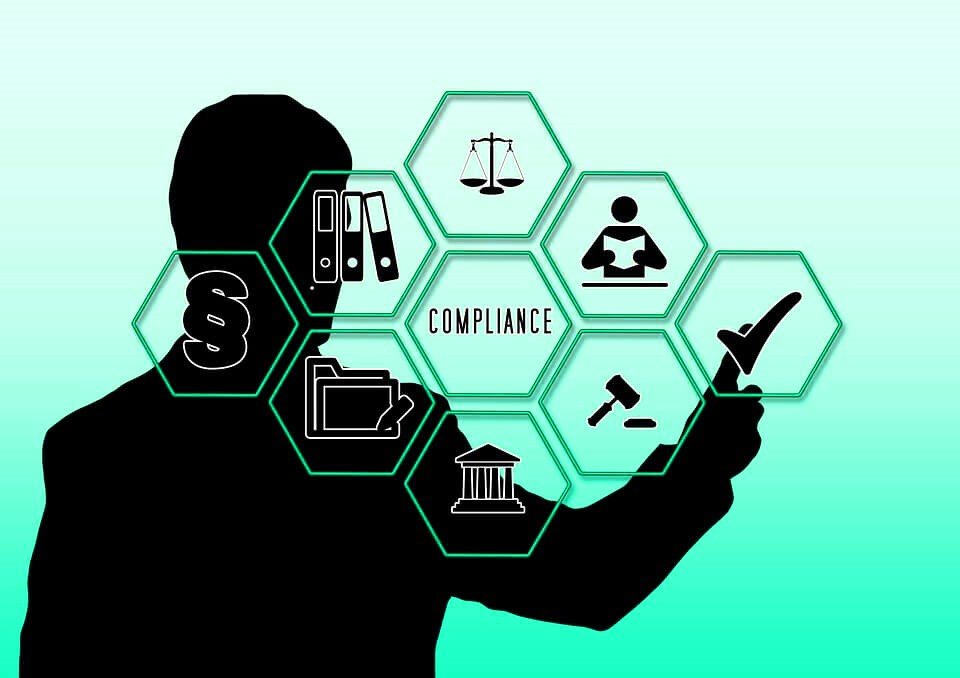The Legal and Regulatory Landscape of the Cryptocurrency Industry


The cryptocurrency industry has experienced significant growth and widespread adoption in recent years. As a result, governments and regulatory bodies around the world are grappling with the challenges posed by this emerging technology. In this article, we will explore the legal and regulatory landscape of the cryptocurrency industry, examining the various challenges, frameworks, and future prospects.
Read More: What to Expect During a Car Accident Lawsuit (2023)
Cryptocurrencies, such as Bitcoin and Ethereum, are digital or virtual currencies that use cryptography for security. They operate on decentralized networks, enabling secure and transparent transactions. Over the years, cryptocurrencies have gained immense popularity, attracting investors, businesses, and even governments.
Definition of cryptocurrencies
Cryptocurrencies are digital assets that rely on cryptography to secure transactions, control the creation of additional units, and verify the transfer of assets. They are typically based on blockchain technology, which ensures transparency and immutability.
Rise in popularity
Cryptocurrencies have gained widespread popularity due to their potential for high returns, borderless transactions, and independence from traditional financial systems. The increasing acceptance of cryptocurrencies by mainstream institutions and the general public has fueled their growth.
Legal Challenges
The decentralized and borderless nature of cryptocurrencies presents unique challenges for governments and regulatory bodies worldwide. One of the major challenges is the lack of regulatory frameworks specifically designed for cryptocurrencies.
Lack of regulatory frameworks
Many jurisdictions are yet to establish clear regulations for cryptocurrencies. This regulatory vacuum creates uncertainty for businesses and investors, hindering the industry’s growth and potentially exposing participants to risks.
Government responses
Governments have adopted various approaches to address the challenges posed by cryptocurrencies. Some countries have embraced cryptocurrencies, recognizing their potential for economic growth and innovation. Others have taken a cautious approach, imposing restrictions or outright bans to mitigate perceived risks.
International perspectives
The regulatory landscape for cryptocurrencies varies significantly from country to country. Some nations have implemented comprehensive frameworks, while others are still in the early stages of formulating regulations. International coordination and collaboration are crucial to ensuring a harmonized approach to cryptocurrency regulation.
Regulatory Framework
As the cryptocurrency industry matures, governments and regulatory bodies are actively working on developing comprehensive regulatory frameworks to address the unique characteristics and risks associated with cryptocurrencies.
Developing regulations and policies
Regulators are developing regulations and policies to govern the cryptocurrency industry. These frameworks aim to provide clarity on legal obligations, licensing requirements, and compliance standards for businesses operating in the sector.
Classification of cryptocurrencies
One of the key aspects of cryptocurrency regulation is the classification of different types of cryptocurrencies. Regulators classify cryptocurrencies based on their functionality, purpose, and underlying technology, enabling tailored regulatory approaches.
AML and KYC regulations
Anti-Money Laundering (AML) and Know Your Customer (KYC) regulations are crucial in combating illicit activities in the cryptocurrency industry. Regulators are implementing measures to ensure proper due diligence, transaction monitoring, and reporting requirements to prevent money laundering and terrorist financing.
Consumer protection measures
To safeguard consumers, regulatory frameworks address issues such as fraud, scams, and misleading practices in the cryptocurrency industry. Consumer protection measures aim to promote transparency, fair trading practices, and dispute resolution mechanisms.
Taxation and reporting requirements
Cryptocurrency taxation is a complex and evolving area. Governments are establishing tax guidelines and reporting requirements to ensure proper taxation of cryptocurrency-related transactions, including capital gains and income generated from cryptocurrency activities.
Security and fraud prevention
Ensuring the security of cryptocurrency transactions and preventing fraud is paramount. Regulatory frameworks encompass cybersecurity standards, measures to protect user funds, and guidelines for exchanges and custodians to enhance security practices.
Licensing and compliance
Operating within a regulated framework often requires businesses in the cryptocurrency industry to obtain licenses and comply with specific obligations. Regulators are working on defining licensing requirements and monitoring compliance to foster a trustworthy and well-regulated environment.
Cross-border implications
The borderless nature of cryptocurrencies presents challenges in terms of jurisdiction and international cooperation. Regulators are exploring ways to address cross-border implications, including collaboration with other countries and standardization of regulations.
Future Prospects
Despite the challenges, the cryptocurrency industry continues to evolve, and the future holds promising developments that could shape its regulatory landscape.
Industry collaborations and self-regulation
Industry collaborations and self-regulatory organizations play a vital role in shaping the regulatory landscape. By establishing best practices, standards, and codes of conduct, these initiatives enhance transparency and promote responsible behavior within the industry.
Decentralized finance (DeFi)
Decentralized finance, or DeFi, is an emerging sector within the cryptocurrency industry. DeFi applications enable traditional financial services such as lending, borrowing, and trading without intermediaries. Regulators are closely monitoring DeFi developments to assess potential risks and ensure appropriate regulations are in place.
Central bank digital currencies (CBDCs)
Several central banks are exploring the concept of central bank digital currencies (CBDCs). These digital currencies, issued and regulated by central banks, aim to provide the benefits of cryptocurrencies while maintaining government control over monetary policy and financial stability.
Potential for blockchain technology
The underlying technology behind cryptocurrencies, blockchain, has vast potential beyond the financial sector. Governments and organizations are exploring blockchain applications in areas such as supply chain management, identity verification, and voting systems.
Conclusion
In conclusion, the legal and regulatory landscape of the cryptocurrency industry is still evolving. Governments and regulatory bodies worldwide are working to establish clear frameworks that balance innovation and risk mitigation. As the industry matures, collaboration, international coordination, and continuous adaptation will be crucial to ensure a well-regulated and secure environment for cryptocurrencies.
Read More: The Responsibilities of Criminal Defense Lawyers in Protecting Defendants’ Rights (2023)
FAQs
Q: Are cryptocurrencies legal?
The legality of cryptocurrencies varies from country to country. Some nations have embraced cryptocurrencies, while others have imposed restrictions or bans. It’s important to comply with the regulations of the jurisdiction you operate in.
Q: How are cryptocurrencies regulated?
Cryptocurrencies are regulated through a combination of existing financial regulations, new frameworks specifically designed for cryptocurrencies and self-regulatory initiatives within the industry.
Q: What are the risks associated with cryptocurrencies?
Cryptocurrencies carry risks such as market volatility, security vulnerabilities, scams, and regulatory uncertainty. It’s important to conduct thorough research, exercise caution, and adhere to best practices when engaging with cryptocurrencies.
Q: How can I ensure the security of my cryptocurrency investments?
To enhance the security of your cryptocurrency investments, use reputable exchanges and wallets, enable two-factor authentication, keep your private keys secure, and stay informed about the latest security practices.
Q: Will cryptocurrencies replace traditional currencies?
The potential for cryptocurrencies to replace traditional currencies is still uncertain. While cryptocurrencies offer certain advantages, widespread adoption and regulatory acceptance would be necessary for a significant shift to occur.









One Comment